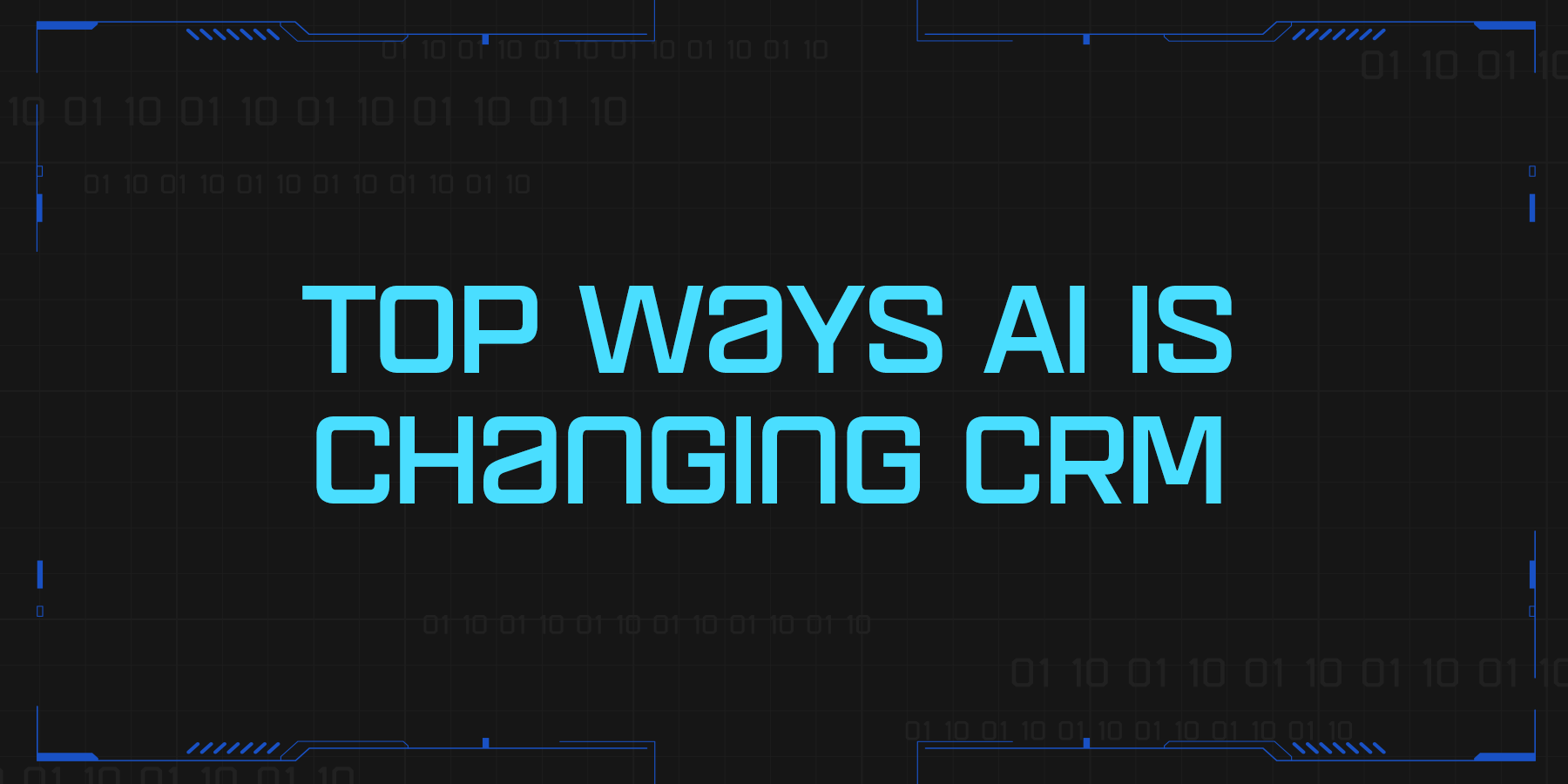
Artificial intelligence (AI) was once the stuff of science fiction. Now, it’s quickly becoming essential to our everyday lives.
Taken an Uber lately? The app’s handy estimated wait times and cost projections are fueled by machine learning, a subset of AI.
Or maybe you spent the past weekend binging Netflix. AI fuels those helpful personalized recommendations (and helps you avoid rewatching the same episode of The Office for the hundredth time).
AI is quickly working its way into CRM. Even if your organization isn’t currently using AI, chances are you’re competing against sales and marketing teams that do.
Read on to learn the top ways AI is changing the CRM landscape and giving competitive sales and marketing teams a leg up.
Why AI in CRM?
AI-powered CRM tools can recognize patterns, recommend next best actions, predict outcomes, and automate sales processes. The result? The sea of names and data in your CRM transforms into real, actionable customer intelligence.
Despite the wide-ranging benefits of AI-powered CRM, some CRM users are reluctant to fully embrace the concept, believing AI to be overly expensive, abstract, and unproven.
But as AI in CRM becomes more commonplace, CRM users have more options for AI tools than ever before—meaning room to negotiate with vendors and get competitive pricing. Top players to watch in this field include Salesforce Einstein and Zoho. As these tools advance, the question might soon shift from “Can I afford to invest in AI-powered CRM?” to, “Can I afford not to?”
Bot bonanza
In a digital world, your clients expect everything instantly—which includes communications from your team. Waiting a day or two to follow up with a lead who completed a form on your website might have been acceptable five years ago. Now, it’s unthinkable.
Unless they have secret superhuman abilities, sales and customer service teams simply can’t man their phones and emails 24/7. AI-powered virtual assistants and chatbots can. A chatbot won’t be right for every interaction. But to answer routine questions or schedule meetings, these tools can be incredibly effective.
AI-powered chatbots and virtual assistants have also proven helpful to follow up with new leads or continue nurture sequences. This ensures that you don’t accidentally “ghost” a hot prospect and frees up your team for more value-adding activities.
Rapid advancements in Natural Language Processing (NLP) and Natural Language Understanding (NLU) capabilities are broadening the scope of virtual assistants and enabling them to understand conversational nuances, slang, and emotional sentiments. As these tools get smarter, their potential for interacting with customers and prospects goes through the roof.
Forecasts indicate the Intelligent Virtual Assistant market will reach $35.1 billion by 2025, illustrating significant consumer appetite for the field.
Don’t wait to automate
CRM is the engine that keeps businesses running. But feeding and maintaining this engine is no small task. (Though thankfully, you don’t have to remember to get your oil checked.)
Manual data entry is typically a huge headache for CRM users and a major barrier towards CRM adoption. Typing in each customer interaction and preparing reports can take hours each day—particularly for organizations with longer sales cycles. This takes time away from building relationships, nurturing leads, and closing deals.
If the CRM isn’t easy to use, your team will jump ship and revert back to one-off Excel sheets and siloed record-keeping. And as the “Great Resignation” continues, forcing your team to spend hours on slow processes might be the final push that sends your top talent walking.
Once again, AI in CRM to the rescue. AI-powered tools can automate time-sucking manual processes like entering data, looking up customer information, exporting reports, and centralizing data pulled from various channels and interfaces.
Certain AI tools can also eliminate the need to mine through LinkedIn or other social platforms for prospect information—another task that commonly leads to after-hours work and cranky team members.
See the future
Okay, so AI can’t give you psychic powers just yet. But it can make your sales forecasts more accurate.
Data that sits in the CRM collecting dust is of no use to anyone. To stay a step ahead of competitors, CRM users need a way to put this data to meaningful use. AI-powered CRMs can analyze massive volumes of data and condense the information into digestible reports, including accurate sales forecasts.
AI in CRM eliminates many of the blind spots associated with manual sales forecasting, like overenthusiastic sales projections or valuable data getting excluded because it’s too much to process.
Using insights collected via AI, teams can also score leads more accurately and better understand which leads are likely to convert. This improves forecasts and helps sales teams focus their efforts on the right prospects.
No matter how great your sales and marketing teams are, there’s always room to kick things up a notch. AI in CRM helps marketing and sales teams assess customer journeys and gain real-time insights into customers’ pain points, preferences, and sentiments. Armed with these insights, teams can contact customers before they get cozy with your competitors, or plan for customer turnover and modify forecasts accordingly.
Roadblocks to AI in CRM
AI promises wide-ranging benefits for CRM users. But there’s a major roadblock to any team’s success with AI: Poor data quality. No matter how “smart” your tool is, garbage data in = garbage insights out.
To learn more about how your organization can unlock the full benefits of AI in CRM, read Validity’s eBook, “Are You Ready for AI?”